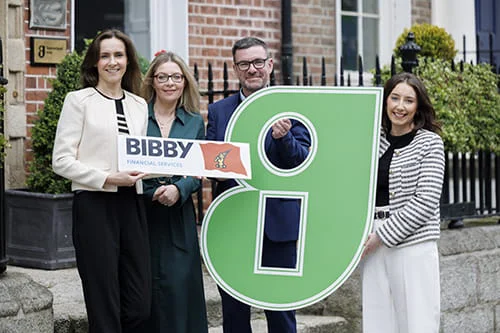Invoice factoring vs overdrafts
Updated: 22 July 2022
Businesses looking to improve their cashflow should consider alternatives to the traditional overdraft or bank loan to manage day to day operations more effectively and to provide the flexibility to grow the business.
Businesses not wishing to add further debt could consider invoice finance as a viable alternative. But what is it and how much will it cost? Here we demystify invoice finance and explain what it is and what you need to know before deciding to apply for invoice finance or a bank overdraft.
Invoice Finance
An invoice finance organisation agrees to advance you the majority of the money outstanding in a businesses unpaid invoices (debtor book), helping them to obtain income they have already earned but not yet received, usually up to 90% percent of the value of the invoices.
So, if, for example, you have €500,000 currently owed to you by your clients, Invoice Finance can provide you up to €450,000 upfront while waiting for 30 to 120 days credit that a business has given to its customers. The remaining balance will then be paid to you minus an agreed fee when the customer has paid their invoice. This means that, unlike a loan or overdraft, Invoice Finance allows you to utilise your customer sales by getting access to that money upfront without the additional outlay of monthly repayments for a similar cash lumpsum.
The advantages of this are many – knowing you’ll receive money means you can negotiate better payment terms with your own suppliers, build stronger relationships with your customers and employees, and make plans to market your business.
Using an Invoice Finance provider means you have peace of mind knowing you will receive payment around 24 hours after you issue the invoice. And the more invoices you issue, the more cash you build, with no further need to negotiate additional payment contracts with the factoring organisation or provide further collateral. Usually invoice finance contracts run annually, but they can be shorter-term.
Business overdrafts
You apply for a business overdraft through your bank. Essentially an overdraft is a credit facility that allows you to access cash up to a specified account limit.
Most overdrafts run annually meaning you must renegotiate terms with the bank. Additionally, banks usually ask for collateral to secure the overdraft.
And if you go over your agreed overdraft, you’re liable for extra charges and penalties. Overdrafts can also be withdrawn without notice.
Comparisons between invoice finance and business overdrafts
Collateral
With Invoice Finance from alternative lenders in Ireland, your invoice is the collateral. The creditworthiness of your customers is key. An overdraft may require a charge over property or equipment.
Flexibility
Financing more invoices means your access to cash grows exponentially. Once you’ve reached a limit on your overdraft, you have to pay it off or renegotiate. Many banks have strict lending criteria based around credit scores. If you have a bankruptcy in your background, it’s highly likely you’ll be turned down.
With Invoice Finance, providers tend to be more interested in the creditworthiness of you and your customers – rather than your assets for collateral or credit history.
Fees
You should consider how much flexibility you need with your funding when considering which solution is the best match for your business.
Overdraft facilities may cost less than invoice finance services on the surface. Overdraft interest is charged at the agreed rate. However, if the overdraft amount exceeds the agreed terms, then charges will be higher and potentially the overdraft will be withdrawn.
Whatever option you choose, invoice finance or business overdraft; ensure you read the small print and understand the process. Generally the process to arrange an invoice finance agreement is faster than arranging an overdraft. Also, ask what other services your financial services provider can offer to help your business expand.
Bibby Financial Services offers flexible invoice factoring solutions designed to help improve business cashflow. For more information call us on (01) 506 0642.
Related Content

Quarter 3, 2024 / 1 July 2024
SME Confidence Tracker Report 2024
The SME Confidence Tracker 2024 survey provides insights into the challenges and opportunities faced by Ireland's SMEs.
Read more
Updated: 23 August 2024
Bibby Financial Services: Proudly Irish, Honoured with Guaranteed Irish Symbol
BFS has been awarded the coveted Guaranteed Irish symbol. The move is a strong recognition of the 18+ year track record of BFS in Ireland.
Read more
Updated: 27 March 2024
Do you qualify for Invoice Finance?
What criteria and eligibility requirements does your business need to meet before they can apply for an invoice finance facility
Read more